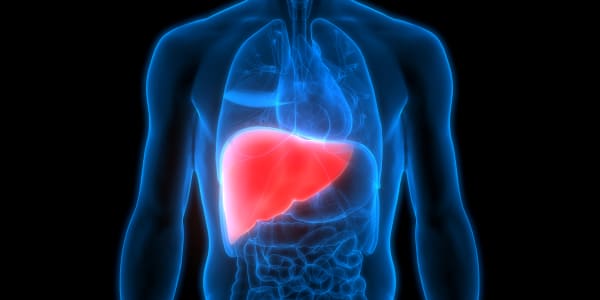
When Bristol-Myers Squibb's mighty immunotherapy drug, Opdivo, failed in a large lung cancer trial in August, investors wiped $22 billion from the company's market value in a single afternoon. But it wasn't because they think the drug doesn't work. Most suspect it was something slightly more complicated — and they'll get much-anticipated answers this weekend.
Both Bristol and Merck are set to release data on their dueling immunotherapies Sunday at a European medical conference, ESMO. The results will have important implications for how we treat lung cancer, the leading cause of cancer deaths, as well as other forms of the disease.
But the data will also answer a key question that's been bugging anyone following the immunotherapy race since Aug. 5: Did Opdivo fail simply because it was tested in patients it was unsuitable for?
"We are stunned," Credit Suisse analyst Vamil Divan wrote in a research note at the time. "We had high expectations for the study."
So did a lot of people. The medicines — Merck's is called Keytruda — are considered among the biggest advancements in cancer treatment in decades, unleashing the immune system to fight cancer.
And Opdivo had sailed from success to success, in melanoma, kidney cancer, blood cancer, and in lung cancer for which patients had already tried other therapies. The failed trial over the summer was in first-line treatment of advanced non-small cell lung cancer, a market opportunity SunTrust analyst John Boris pegs at $7 billion to $8 billion annually.
But scientists say we're still in the early days of understanding how these drugs work best, and the two companies have taken different strategies for testing them. Bristol's is broader, while Merck's involved testing patients' cancer for biomarkers that could indicate the drug is likelier to work. In first-line treatment of lung cancer, Merck's strategy has so far emerged ahead.
Here's why: both drugs block a receptor on cells known as PD-1, which links with a ligand called PD-L1 on cancer cells. Cancer has ways of evading the body's natural defense systems, cloaking itself from our immune soldiers. But blocking PD-1 reveals those cancer cells to our immune system, enabling our own natural defenses to attack.
Different people's cancers express different levels of PD-L1. And this is the key difference in how Bristol-Myers and Merck tested their drugs. In its failed study, Bristol-Myers included patients in whom at least 5 percent of tumor cells expressed PD-L1, or about 55 to 60 percent of advanced non-small cell lung cancer patients who hadn't yet tried other treatments.
Merck limited its testing to patients with at least 50 percent expression of PD-L1, or about a quarter to a third of those in the category. And that appears to work: Merck said in June that Keytruda beat chemotherapy on both progression-free survival, or the time patients live without their tumors growing, and overall survival, a measure of how long patients live, in patients with at least 50 percent PD-L1 expression.
So what does PD-L1 expression mean — and why do higher levels confer a greater benefit from PD-1 blockers?
"It turns out PD-L1 expression is just a marker for the presence of an immune response," explained Merck's head of research, Dr. Roger Perlmutter. "Expression of PD-L1 is increased by immune response factors."
In English: PD-L1 is a signal that the immune system has been trying to fight the cancer. Or, as Perlmutter puts it, "Gee, there's already immune response going on here."
Which means: the more tumor cells that express PD-L1, the more evidence the immune system is ready for a fight. And by taking away the tumor cells' invisibility cloak with PD-1 blockers, the immune system is unleashed.
"Keytruda reveals the pre-existing immunity directed against the tumor in some patients," Perlmutter said.
So, then, presumably, should Opdivo. So if one PD-1 blocker works for the 50 percent threshold, and one failed in the 5 percent threshold, does that mean both should work at 50 percent? That's what everyone's waiting to find out on Sunday.
"At ESMO we'll finally learn why CM-026 failed," BMO Capital Markets analyst Alex Arfaei wrote in a research note Friday, referring to the name of Bristol's trial, Checkmate-026 (the drugs are also referred to as "checkpoint" inhibitors).
When Bristol released the results in August, they revealed only that the study didn't meet its primary goal: extending progression-free survival compared with chemotherapy.
Sunday, Bristol is expected to share more detailed information on groups of patients in the trial, including those with PD-L1 expression of more than 50 percent.
Most investors expect the results to be similar to Merck's, according to an investor survey from Evercore ISI's John Scotti. Though analysts caution the study was set up differently, so it may not show the same result.
"Just to caveat, before everyone sees the analyses, Bristol's trial was not powered for this," Scotti told investors in a video last week. "There's probably going to be a lower amount of patients in the greater than 50 percent cutoff."
The conference also will feature data from Roche's Genentech, which has another immunotherapy drug targeting PD-L1 rather than PD-1, called Tecentriq. It will have results in patients with lung cancer who have already tried other therapies. The FDA is expected to decide on whether to approve the drug in that indication later this month, after the company reported in August that it improved overall survival compared with chemotherapy.
Merck has applied for approval of Keytruda in advanced first-line non-small cell lung cancer, with an FDA decision date of Christmas Eve. Bristol-Myers, because of its failed trial, is waiting for results from a study combining Opdivo with its other immunotherapy drug, Yervoy. And analysts say the field is already turning toward combination treatments for the disease.
"There is still more to be learned," said Dr. Prasad Adusumilli, deputy chief of thoracic surgery at Memorial Sloan-Kettering Cancer Center. He's not affiliated with either company. "It's a new, novel treatment."




